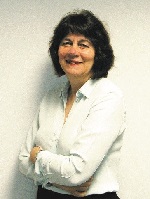The Radiation Oncology Safety and Quality Committee (ROSQ) update - PDF Version
Activities of the Radiation Oncology Safety and Quality Committee (ROSQ) of the European SocieTy for Radiotherapy and Oncology (ESTRO) are aimed at improving safety and quality in the preparation and delivery of radiotherapy and raising compliance of member states with the legal requirements that are defined in European directives in the areas of radiation safety and quality. The committee membership reflects all disciplines that are involved in treatment preparation and delivery and reflects international interest in all aspects of improving the safety of radiotherapy.
In order to enable compliance with the directives, ESTRO adopted the ROSEIS (Radiation Oncology Safety Education and Information System) incident reporting and learning system system which is available to all members through their ESTRO logins. The long-term aim is to establish links with other reporting and learning systems to enable the sharing and analysis of commonly reported incidents. We also aim to enable preparation of summary reports of incidents common to all, and of incidents considered of high importance for the community.
The ROSEIS website has links to all international organisations that are related to quality and safety in radiotherapy and details of publications in the areas of risk and safety. The website contains educational material in the form of a series of webinars and lectures. These will continue to be updated to include new approaches to preparation and treatment and the related risk and safety issues. Collaboration is ongoing with the heads of the radiological protection competent authorities (HERCA) and the European coordination committee of the radiological, electromedical and healthcare information technology industry (COCIR) on joint or endorsed publications and guidelines.
Working groups have been established to prepare a guideline of readiness in the event of a cyber-attack and to consider what radiation protection means in the context of radiotherapy.
Ongoing and future activities include:
- provision of additional online education material and live webinars;
- expansion of the ROSEIS dataset to include new techniques/technologies, alerts, and risk assessment methodologies;
- analysis of incident reports and dissemination of findings;
- development of networks to share information on incidents and near incidents;
- the impact and management of cyber-attacks in radiotherapy;
- quality guidelines;
- the role of peer review; and
- highlighting the importance of safety in radiotherapy to a wider audience.
Members’ update:
The term of Dirk Verellen, of the Iridium Cancer Network Antwerp and Antwerp University, Belgium, will end in May 2022.
Michael Baumgartl, of University Hospital Zurich, Switzerland, joined the committee in January 2022.

Mary Coffey
Chair, ROSQ